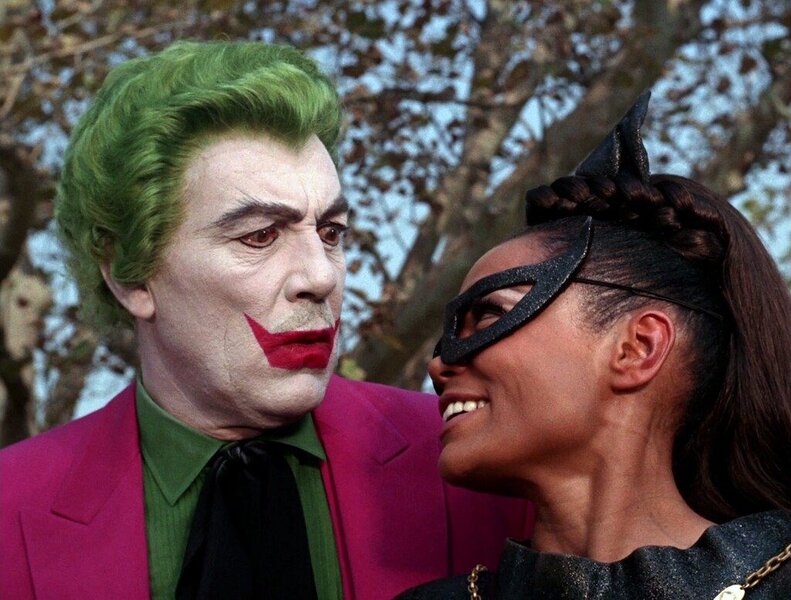Was Jack Nicholson really terrible as joker?
If someone says Jack Nicholson was “terrible” as the Joker, that’s honestly way off. Jack wasn’t bad at all. First of all, you have to remember what movies were like when Tim Burton’s Batman came out in 1989. The superhero genre wasn’t anything like what it is today. It wasn’t a billion-dollar industry filled with massive universes and interconnected storylines.
The only superhero movies that really existed before that were Superman and the campy 1960s Batman show, which was basically slapstick comedy. So when Burton decided to make a darker, gothic version of Batman, that was a bold and risky move. And right in the middle of all that, Jack Nicholson stepped in not just to play a villain, but to completely redefine how people saw comic book characters on screen.
Nicholson came in with the kind of star power and screen presence that few actors had. He was already famous for roles that were intense, unpredictable, and full of charisma. He didn’t take the “method acting” route that Heath Ledger later became known for, but he didn’t need to.
Jack had a natural magnetism that made his Joker feel alive, dangerous, and oddly charming at the same time. Like one of the answers said, “Jack walked so Heath could do a kickflip over Batman.”
That’s the perfect description. Jack built the bridge between the goofy, clownish Joker of the 1960s, played by Cesar Romero, and the dark, psychotic version we see in modern movies. Without Nicholson, the Joker probably wouldn’t have evolved into what it became.

What made Nicholson’s Joker special was how he combined two things that shouldn’t work together: humor and terror. He was loud, funny, and theatrical, but there was a real sense of danger behind it all.
Think about that famous museum scene where Joker and his gang destroy paintings while dancing to Prince. It’s absurd and creepy at the same time. He wasn’t just committing crimes; he was performing them like an artist enjoying his own madness. That is the essence of the Joker, someone who treats chaos like an art form.
The second answer you shared makes another strong point. Back then, actors playing comic book roles weren’t expected to push themselves to the limits of physical or mental endurance. Nicholson didn’t have to starve himself or isolate from everyone to deliver a great performance.
He just showed up and used his instincts. He knew how to command attention with his presence. His performance was big, colorful, and perfectly suited for the tone of the movie. By the standards of 1989, his Joker was unforgettable.
When you compare him to Heath Ledger or Joaquin Phoenix, it’s clear that all three were doing something different. Ledger created a more realistic, grounded Joker. Phoenix made him tragic and deeply human. Nicholson’s version was larger than life and closer to the comic book roots.
That doesn’t make it shallow, just different. His Joker belonged to Burton’s surreal and stylish world. He was funny, scary, and fascinating all at once. You couldn’t look away, even when he was being completely insane.
The third answer adds another great perspective. When Nicholson played the Joker, there wasn’t much to compare him to. The only live-action Joker before him was Cesar Romero, and the animated Batman: The Animated Series hadn’t even started yet.
So Nicholson was inventing a new kind of Joker from scratch. He captured the character’s unpredictability, chaos, and twisted sense of fun perfectly. If Heath Ledger’s Joker was a planner who used chaos strategically, Nicholson’s Joker was chaos itself, wild and impulsive. Some fans prefer that version because it feels truer to the Joker’s nature.
It’s also true, as that answer mentioned, that Mark Hamill deserves credit for perfecting the Joker in animation. But Hamill’s version clearly drew inspiration from Nicholson. The laugh, the rhythm of speech, the mix of humor and menace were already there in Jack’s performance. His influence extended beyond live-action and shaped how the Joker sounded and behaved in every medium afterward.
The fourth answer points out one of the movie’s most controversial choices: making Joker the killer of Bruce Wayne’s parents. In the comics, that event is supposed to be random, a senseless tragedy that drives Bruce to become Batman. Changing that detail upset a lot of longtime fans. But that was a creative decision by Tim Burton, not Nicholson’s doing. Within that version of the story, Jack still gave everything he had. His Joker felt dangerous, chaotic, and unpredictable from start to finish.
What really stands out about Nicholson’s Joker is how much fun he seemed to have. You can see it in every grin, every laugh, every moment on screen. He didn’t just act as the Joker, he enjoyed being him. That energy is contagious. Many actors can play evil, but very few can make evil feel entertaining and magnetic at the same time. Jack managed to make the Joker terrifying and fun, often in the same scene.
When you look at the bigger picture, Nicholson’s performance changed everything. He proved that a comic book villain could be taken seriously while still being entertaining. His take on the Joker showed that an actor could play with style, humor, and depth all at once.
He paved the way for future interpretations by showing that this character wasn’t just a clown, but a symbol of chaos and creativity. Without Nicholson, Heath Ledger’s or Joaquin Phoenix’s versions might never have existed in the form we know today.
Of course, not everyone today connects with his performance. Some viewers think it feels dated or too over the top compared to modern takes. But if you put yourself in the mindset of 1989, it was revolutionary. Before Nicholson, comic book villains were jokes. After him, they were complex, fascinating characters. His Joker blended humor, horror, and charisma in a way no one had ever done in a superhero movie before.
The honest truth is that Jack Nicholson wasn’t terrible as the Joker. He was groundbreaking for his time and remains one of the most important versions ever brought to life. He bridged the gap between silly and sinister, setting the standard for everything that came afterward. He proved that comic book villains could be art, and he helped shape the tone of an entire genre.
So if anyone says Jack Nicholson was terrible as the Joker, they’re missing the bigger picture. He was more than good; he was essential. He didn’t just play the Joker, he defined him for generations. Watch his performance again today, and you’ll see it. Jack Nicholson wasn’t terrible. He was timeless.
